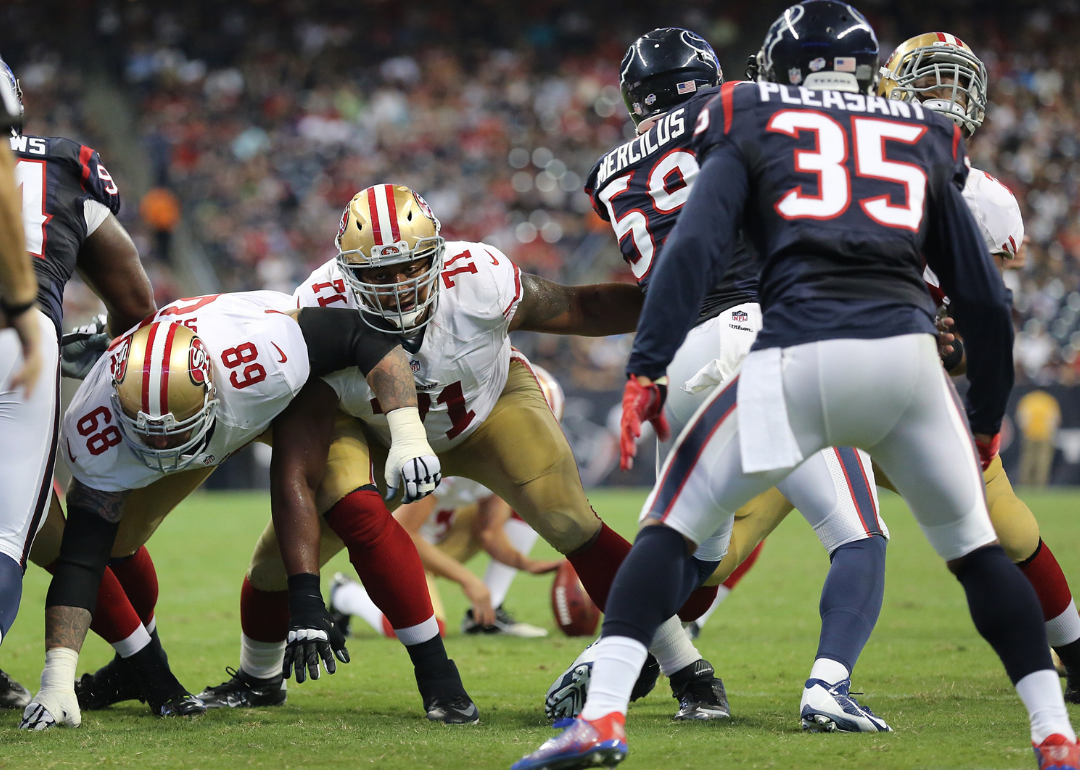
10 athletes who have promised to donate their brains for research
This story originally appeared on HealthMatch and was produced and distributed in partnership with Stacker Studio.
10 athletes who have promised to donate their brains for research
Athletes have surely suffered from chronic traumatic encephalopathy since at least 688 B.C. when boxing was introduced at the Ancient Greek Olympics. Yet it didn’t receive widespread recognition until after the ’00s when Pittsburgh forensic pathologist Bennet Omalu began investigating the link between repeated head trauma among NFL players and the degenerative brain disease. The 2015 film “Concussion,” in which Will Smith played Dr. Omalu as he fought the NFL’s attempts to dismiss his research, raised widespread awareness about the issue. The CTE-linked suicides of NFL stars Junior Seau, Aaron Hernandez, and Andre Waters drew further attention to these dangers.
The NFL finally acknowledged the link in 2016.
CTE is caused by repeated head trauma that often leads to mood and behavioral disorders and dementia. In 2017, researchers found CTE to be a root cause of death in 99% of former NFL players they examined. The league’s response has included new safety rules and improved helmets.
The growing awareness of the disease has led to rules and equipment changes in other contact sports while more than 3,000 athletes pledged to donate their brains for research upon their deaths. HealthMatch has compiled a list of 10 leading active and retired athletes who are among them.
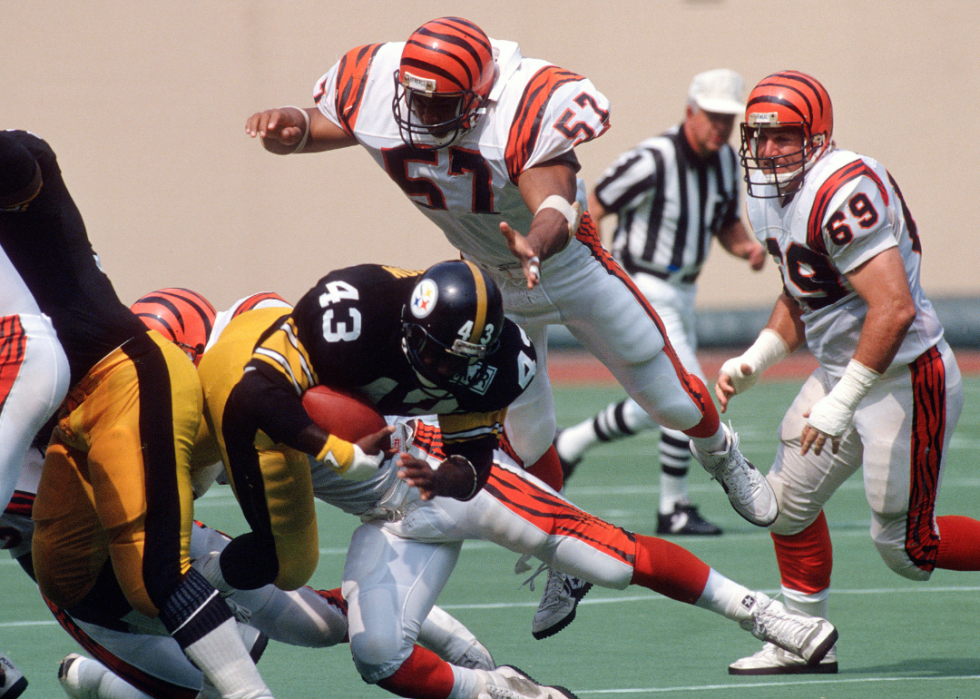
Reggie Williams
- Sport: Football
Success has followed Reggie Williams, 67, all his life. He attended Dartmouth on an academic scholarship, where he held a College Hall of Fame career as a linebacker. He went on to record 62 sacks during 14 seasons with the Cincinnati Bengals, played in two Super Bowls, and twice earned “NFL Man of the Year” honors. He later served on the Cincinnati City Council and was vice president of Disney Sports Attractions.
Severe mood swings convinced Williams he has CTE, and in 2020, he announced he would donate his brain to research. “I want to do anything I can to make football safer and help the next generation of athletes,” he said. “You can’t give up because there are ways to manage [CTE] symptoms and live a healthy life.”
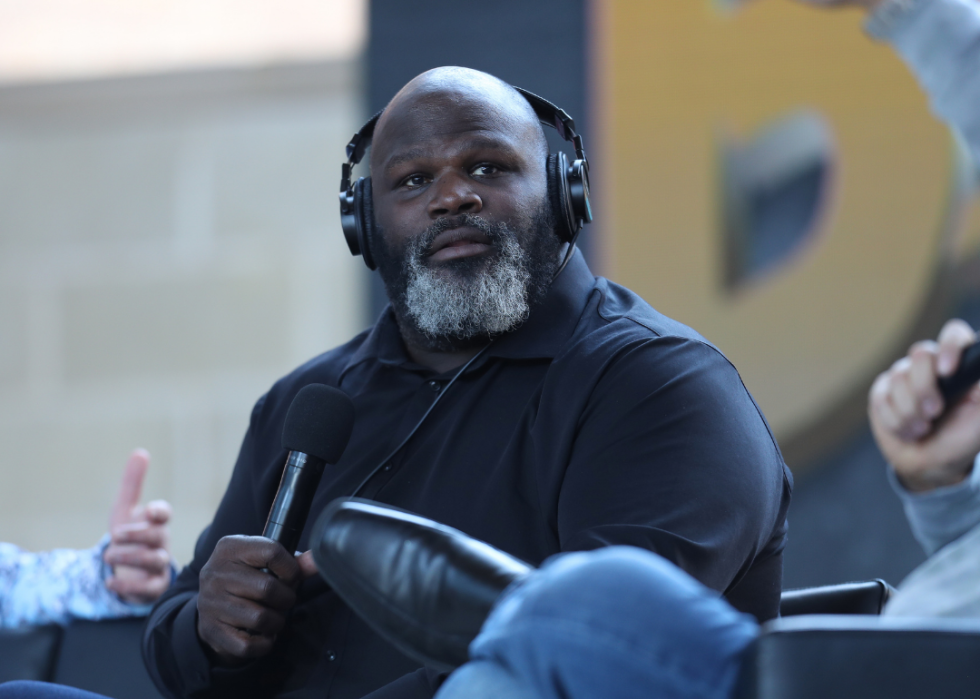
Mark Henry
- Sport: Wrestling
It’s hard to think of what Mark Henry hasn’t done to cement his reputation as a world-class strongman. Henry, 50, is best known as a longtime WWE wrestler with two world titles, but before that, he was a two-time Olympic weightlifter and a world-champion powerlifter who still holds world powerlifting records.
He took a lot of hits during a 25-year WWE career, though, even when he clocks in at 6-foot-4 and 360 pounds. Knowing that, he announced in 2019 he would donate his brain to research. “Maybe it will help with figuring out how things work [including] kids playing sports,” he said.

Abby Wambach
- Sport: Soccer
Heading the ball in soccer is as routine as being tackled in football—and maybe even more dangerous in the long term. Abby Wambach headed the ball more than most players.
Research revealing the dangers of repeated head injuries helped convince Wambach, the U.S. Women’s National Team all-time leading scorer, to join teammates Brandi Chastain and Megan Rapinoe in announcing in 2016 that she would donate her brain. A violent collision with a teammate in 2013 resulted in her only diagnosed concussion, and after that, she began heading the ball less often due to CTE concerns. She figures she has suffered “hundreds” of micro-concussions on the field. “I cringe [now] whenever players go up to head a soccer ball,” she said. “I cringe at my former, risk-taking self because we only have this one brain.”
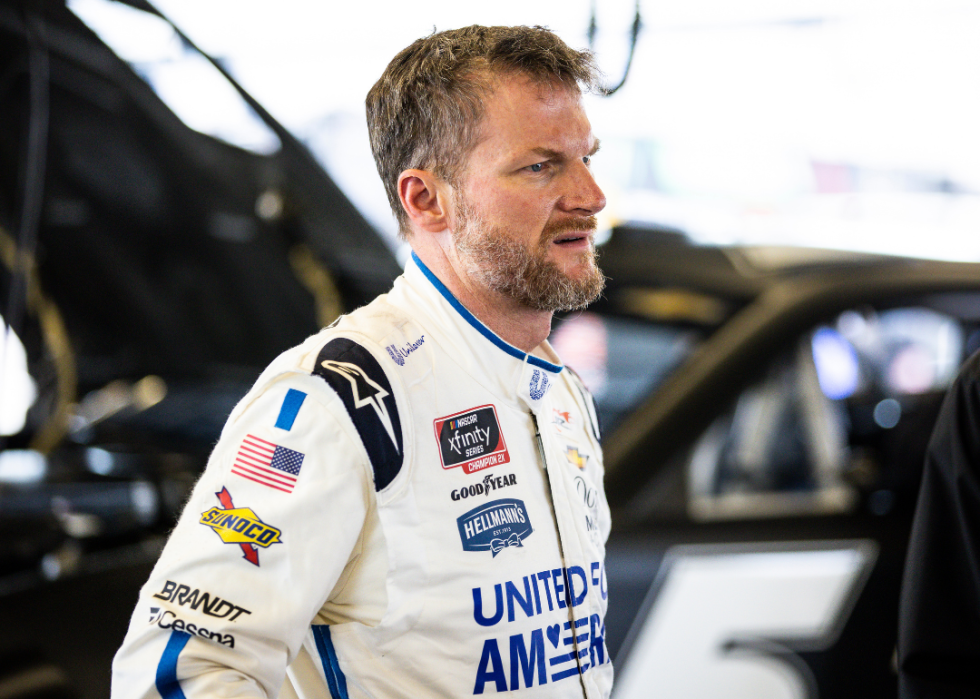
Dale Earnhardt Jr.
- Sport: Auto racing
In 2016, the same year that the NFL belatedly acknowledged the football-CTE connection, a star from a very different sport agreed to donate his brain for research. Dale Earnhardt Jr. knew that while head impact isn’t as common in NASCAR racing as it is in contact sports, the crashes are far more dangerous to the brain. His father, after whom he’s named, died in a collision at the Daytona 500 in 2001.
Earnhardt admitted that he raced several times in 2002 with concussions symptoms, which led to NASCAR tightening its policies about clearing concussion-diagnosed drivers for racing. Then 10 years later, Earnhardt suffered apparent concussions in crashes just six weeks apart; he drove off after the second one without getting a diagnosis. Now 47 and semi-retired, Earnhardt won the Daytona 500 twice, in 2004 and 2014.
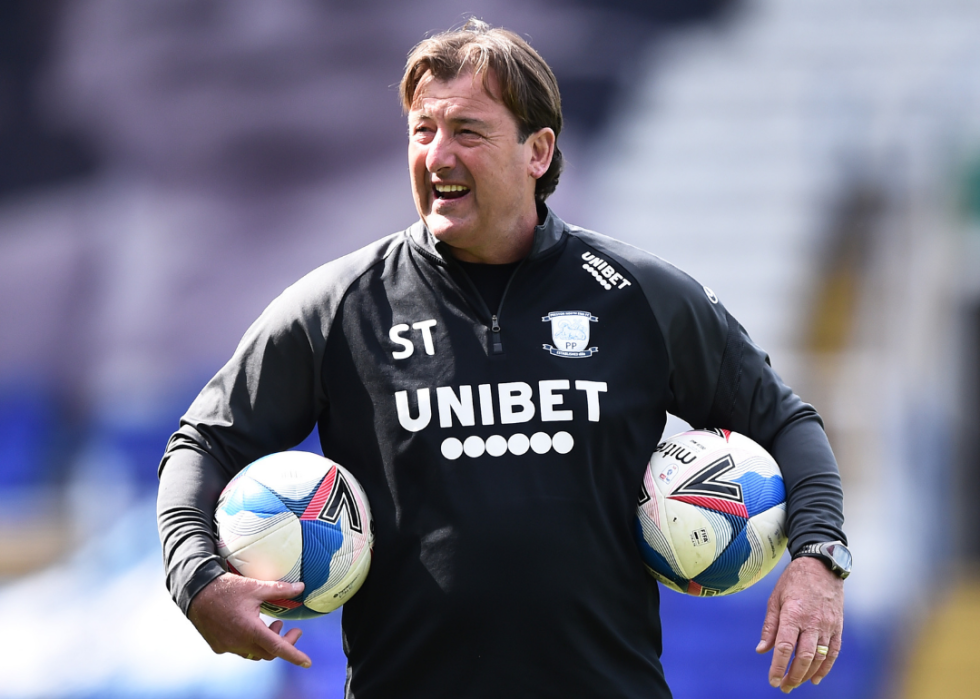
Steve Thompson
- Sport: Rugby
Rugby players have always prided themselves on their toughness. After all, the tackling is similar to football, but rugby players don’t wear helmets (though some wear soft headgear).
British star Steve Thompson, 43, decided to donate his brain for CTE research in September 2021, soon after he was diagnosed with dementia. “It’s up to my generation to pledge our brains so researchers can develop better treatments and ways to make the game safer,” he said.
Last year, World Rugby instituted new guidelines that limit full-contact training to 15 minutes a week and offered brain health care for ex-players. But that didn’t stop Thompson from joining a class-action suit against the organization. Thompson said he doesn’t even remember leading England to the World Cup Rugby title in 2003, the only time a Northern Hemisphere team has won the Cup and the pinnacle of his career. He also claims to have forgotten the name of his wife on more than one occasion.
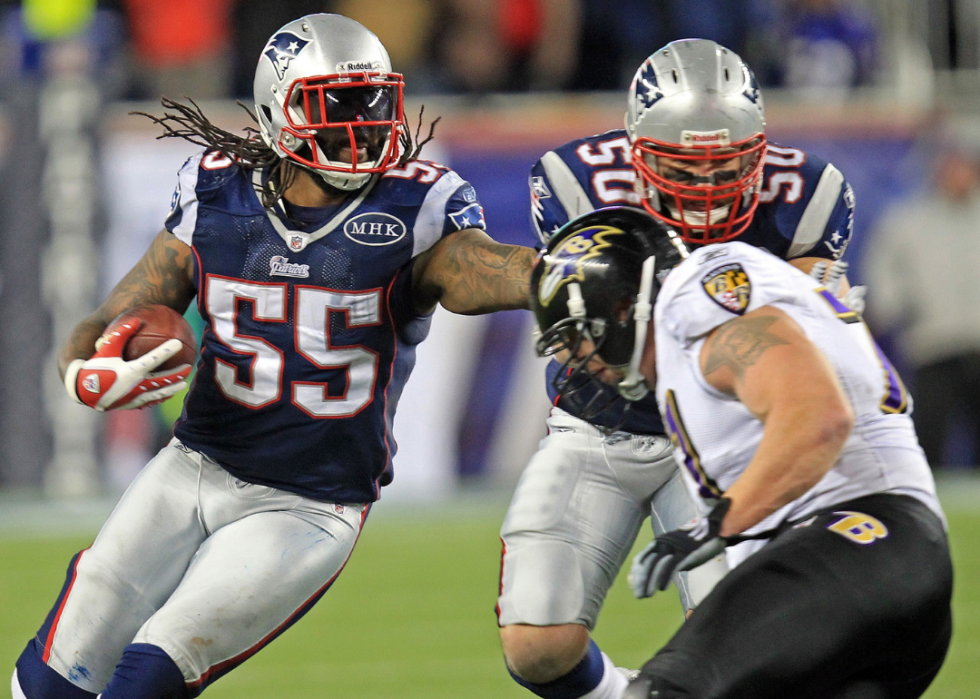
Matt Birk
- Sport: Football
Football players in the center position absorb many impacts as they are hit almost immediately after hiking the ball. Knowing this, center Matt Birk promised to have his brain donated for research.
The timing of the announcement came just days before the high point of his career when he helped the Baltimore Ravens win the 2013 Super Bowl. He retired three weeks later. “If something happens like you can’t find your car keys,” he said, “you think, ‘Is this from football?’”
The following season, independent neurological consultants were hired by the NFL to oversee sideline concussion evaluations.
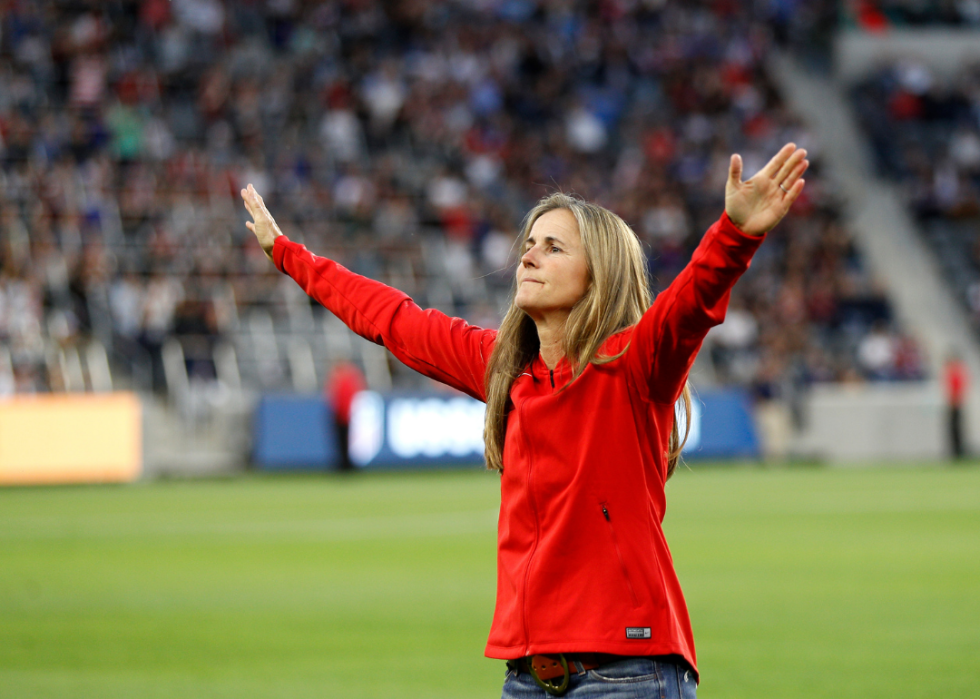
Brandi Chastain
- Sport: Soccer
One of the most memorable photos in sports history shows an elated Brandi Chastain triumphantly clutching her jersey just after her winning penalty kick for the U.S. Women’s Soccer team in their 1999 World Cup thriller over China. The game was held at the Rose Bowl in front of 90,000 fans, including then-president Bill Clinton, and 40 million U.S. TV viewers.
“I loved heading the ball,” she said 21 years later, “and there wasn’t anybody around saying, ‘Hey, you might not want to do that.’” There are now, which is why she joined teammates in announcing in 2016 that she would posthumously donate her brain to science.
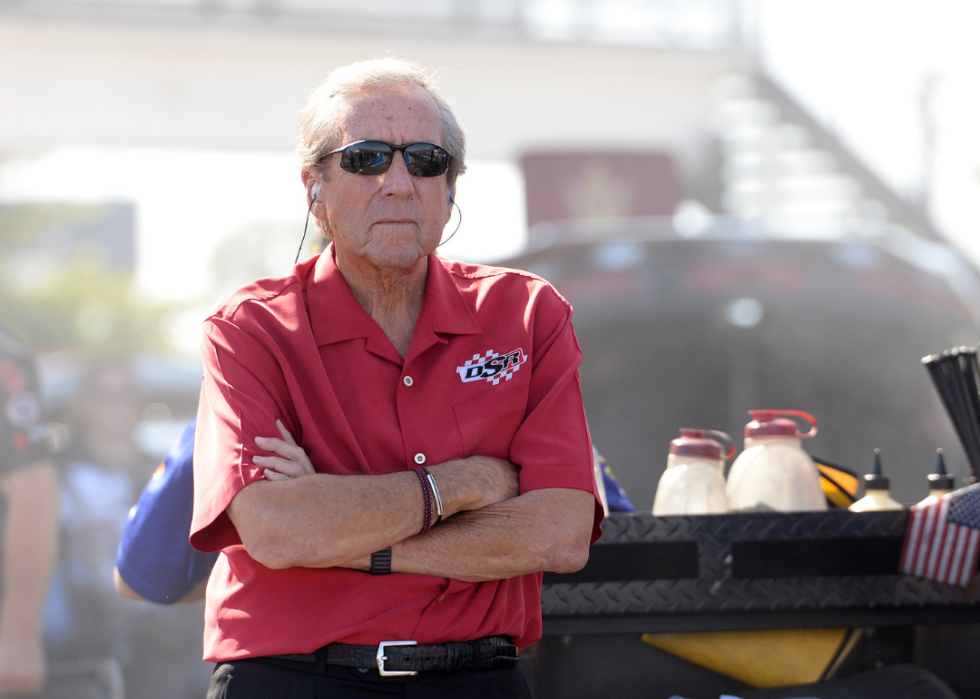
Don Schumacher and his team
- Sport: Auto racing
Don Schumacher became concerned about the health of the NHRA drag racing team he led: In 2018, he convinced all seven of his drivers to join him in pledging to posthumously donate their brains. It was the biggest group in any sport to simultaneously make such a pledge to the Concussion Legacy Foundation.
In keeping with his reputation as a pioneer in promoting safety measures in the sport, Schumacher said he and his Schumacher Racing teammates—one of the most winningest teams in NHRA history—did so in the hope that it might help drivers, soldiers, and anyone else whose vocations or avocations put the health of their brains at risk. Schumacher and his son Tony are two of the most accomplished drag racers in history.
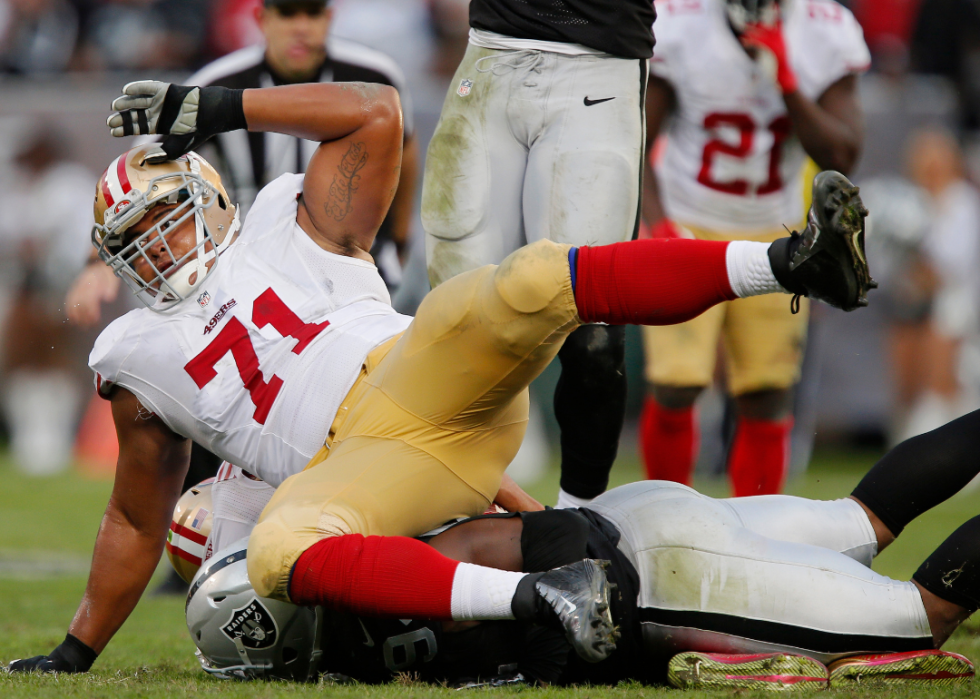
Jonathan Martin
- Sport: Football
The recent attention on the mental health struggles of tennis star Naomi Osaka and gymnast Simone Biles was preceded a decade ago by the case of Jonathan Martin. In a scandal that broke in 2014, the Miami Dolphins tackle revealed his teammates bullied him so viciously he contemplated suicide, had to be hospitalized for emotional distress, and ultimately left the NFL after just three seasons.
Martin, who was also a standout lineman at Stanford, later told The New York Times: “When I was playing, no one talked about mental health.”
He has struggled with anxiety, depression, and mood swings since retiring from football, which he partially attributes to CTE damage caused by 13 years of absorbing hits in football. He announced in October 2021 that he would donate his brain for research.
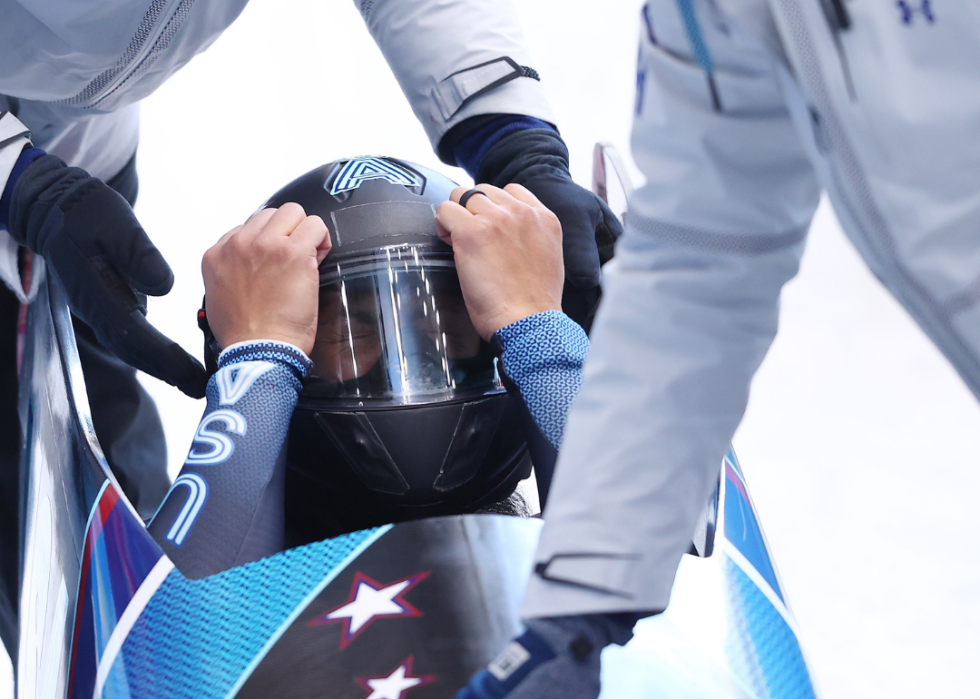
Elana Meyers Taylor
- Sport: Bobsled
By winning silver in the monobob and bronze in the two-woman bobsled at the 2022 Beijing Olympics, Elana Meyers Taylor became the most decorated Black athlete in Winter Olympics history. Competing at age 37 in Beijing, it was the fourth straight Games where she won at least one medal.
But the intense G-forces and risk of crashing on the bobsled make it a hazardous sport, which prompted Meyers Taylor to announce at the 2018 Pyeongchang Winter Olympics—along with four-time U.S. ice hockey medalist Angela Ruggiero and five-time Canadian ice hockey medalist Hayley Wickenheiser—to donate her brain for CTE research.
“A concussion nearly ended my career in 2015,” said Meyers Taylor. “And I wish I had known more about the risks of returning [to competition] too quickly. The long-term consequences of brain trauma are a major concern in sports, and I’m doing this for every athlete who will follow in my footsteps.”



